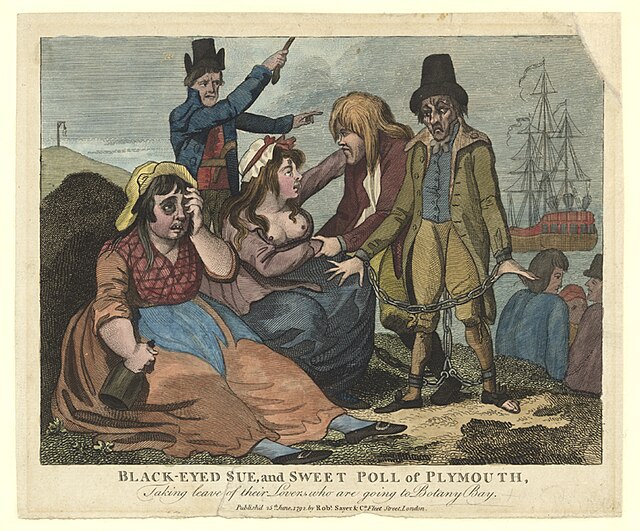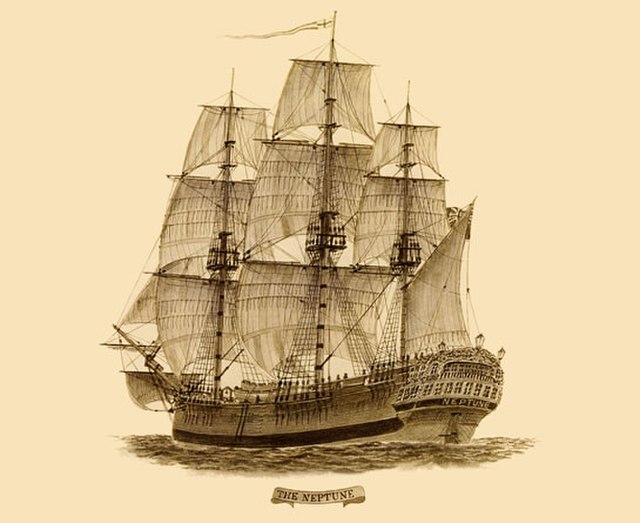Joseph Lycett was a portrait and miniature painter, active in Australia. Transported to Australia for forging banknotes, Lycett found work in the colony as a painter specialised in topographical views of the major towns of Australia, and some of its more dramatic landscapes.
Joseph Lycett, The residence of Edward Riley Esquire, Wooloomooloo, Near Sydney N. S. W., 1825, hand-coloured aquatint and etching printed in dark blue ink. Australian print in the tradition of British decorative production.
Collector's chest featuring Lycett's paintings. The chest is believed to have been presented to Lachlan Macquarie by Captain James Wallis, ca. 1818
Lycett, J. (1824). Views in Australia, or, New South Wales & Van Diemen's Land delineated : In fifty views with descriptive letter press ... by J. Lycett. London, J. Souter., MRB/ F980.1/ L
The property of the late Mr James Squires, Kissing Point, New South Wales. Creator Lycett, Joseph, ca. 1775-1828.
Penal transportation was the relocation of convicted criminals, or other persons regarded as undesirable, to a distant place, often a colony, for a specified term; later, specifically established penal colonies became their destination. While the prisoners may have been released once the sentences were served, they generally did not have the resources to return home.
Women in Plymouth, England, parting from their lovers who are about to be transported to Botany Bay, 1792
Neptune, a 19th-century convict ship that brought prisoners to Australia
Joseph Lycett, an artist transported for forging bank notes, The residence of Edward Riley Esquire, Wooloomooloo, Near Sydney N. S. W., 1825, hand-coloured aquatint and etching printed in dark blue ink. Australian print in the tradition of British decorative production.
1848 Woodcut of HMD Bermuda on Ireland Island, Bermuda, showing prison hulks







